HDFS Gertrude Weigum Hinsz Lecture Series

2023
Ted G. Futris, Ph.D., CFLE, Extension Family Life Specialist and Georgia Athletic Association Professor in Family and Consumer Sciences, Department of Human Development and Family Science, University of Georgia
Promoting relational health: A journey from research to practice, and back again.
Dr. Futris has a Ph.D. in Human Development and Family Studies from the University of North Carolina at Greensboro. Across his 23-year career, Dr. Futris has provided statewide and national leadership for Extension programs in family life, securing more than $27 million from federal and state grants to support the development, implementation and evaluation of educational programs and resources that promote healthy and stable families. As Director of the Couples and Relationship Enrichment (CARE) lab, Dr. Futris’ work integrates research with outreach programming to foster healthy couple and coparenting relationships. Currently, Dr. Futris is the principal investigator on a 5-year, $6.2M federal grant from the U.S. Department of Health and Human Services for a project that aims to enhance the relationship quality of over 2,000 Georgia couples.
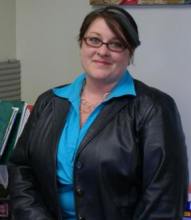
Claire D. Vallotton, Ph.D., Associate Professor and Director of Graduate Studies, Michigan State University
Shut up and watch! How children show us what they need and how to care for them
Dr. Claire D. Vallotton followed her Ph.D. and was a Faculty Fellow at UC Davis, after which she won the Ruth L. Kirschstein Clinical Research Service Award from the National Institute of Child Health and Human Development to study as a postdoctoral fellow at the Harvard Graduate School of Education; the title of her NICHD-funded study was “Symbol and Social Skills in Typical and At-Risk Children.” Dr. Vallotton has also been awarded the New Investigator Award from the World Association of Infant Mental Health, the Award of Distinction for Young Alumni from the College of Agriculture and Environmental Sciences at UC Davis, and was named an Exceptional Emerging Leader in child care research from ChildCare Exchange. She is the founding coordinator of the Collaborative for Understanding the Pedagogy of Infant/Toddler Development (CUPID). CUPID is a group of more than 50 scholars from more than 30 universities who have joined together to understand how to better prepare preservice child development students for future careers in early childhood education and development. Our ultimate goal is to improve practice in the field of infant/toddler care and education by improving our own teaching and preparation of preservice child development university students. Learn more at CUPIDConsortium.org
Vallotton’s general research interests are the early development and integration of cognitive-linguistic and social-emotional skills within the context of caregiver-child relationships, family risks, and culture. She has expertise in infants’ use of symbolic gestures – a.k.a. infant signs – and uses infant signing to gain insight into infants’ internal worlds, and the effects of early symbol skills on later development. Dr. Vallotton conducts translational research to improve the quality of training for the early child care and education workforce and provide parents with effective tools support their children's development of social-emotional and communication skills.
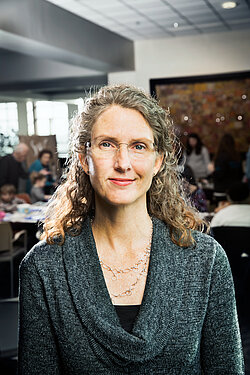
2022
Anne Basting, Ph.D., Professor of English at the University of Wisconsin Milwaukee, and Director of the Center for 21st Century Studies
Zoom recording of the event: https://bit.ly/3KbAXEk
Social Connection and Meaning Beyond Memory
Basting explores the power of creativity to enhance meaning, purpose and joy in late life - regardless of physical or cognitive abilities. She offers examples of projects done before and during the pandemic to build relationships and community.
Dr. Basting also presented a demonstration of TimeSlips storytelling at Touchmark at Harwood Groves. Basting is the Founder and Creative Strategist of the award-winning non-profit TimeSlips Creative Storytelling
About Dr. Basting
Basting is Professor of English at the University of Wisconsin Milwaukee, where she is Director of the Center for 21st Century Studies. Her creative and scholarly research centers on infusing meaning-making practices into health and social care systems, and positions access to meaning and purpose as a human right regardless of age or cognitive or physical ability.
Basting's innovative work as both a community-engaged artist and scholar has been recognized by a MacArthur Fellowship, an Ashoka Fellowship, a Rockefeller Fellowship, and multiple major grants. She is author/editor of multiple books, including her latest, Creative Care (HarperOne); as well as The Penelope Project (U of Iowa), and Forget Memory (Johns Hopkins). She is founder of and a Creative Strategist for the award-winning non-profit TimeSlips Creative Storytelling, an alliance of artists and caregivers bringing meaning and joy to late life through creative engagement and has over 1,000 certified facilitators in 49 states and 23 countries (Note: to all in Hawaii: she will happily visit to certify someone there…).
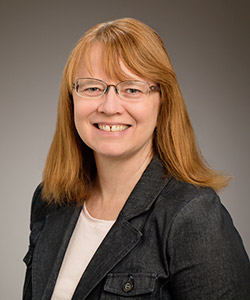
2021
Ramona Faith Oswald, Ph.D., Professor and Head, Human Development and Family Studies, University of Illinois
Here is a recording of the presentation https://bit.ly/3ouCahl
Place Matters: LGBTQ Families in Community Context
LGBTQ parents and their children live in every type of community; differences in location are linked to intersections of race, class, gender, and place-based attachments and identities. These communities vary in their social climate for LGBTQ issues, and community climate variations have an impact on the health and well-being, as well as the political engagement, of LGBTQ parents and their children. Dr. Oswald will describe what is known about the social climate within local legal, political, religious, educational, and employment contexts that LGBTQ parents and their children traverse in daily living. Further, she will summarize the research on how this climate impacts their quality of life. Also, she will discuss the importance of understanding communities as ever-changing, in part due to the efforts of LGBTQ parents and their children.
About Dr. Oswald
Dr. Oswald is advancing knowledge about lesbian, gay, bisexual, and transgender families living in smaller communities. Even though many LGBT families live outside of major cities, most research ignores this fact. She looks at what support these families need, and how their residential communities can provide it in ways that fit local culture.
Currently, Oswald maintains research interests in LGBT families, community social climate, and access to resources, especially in nonmetropolitan and rural contexts. Her ongoing Rainbow Illinois project has collected survey, interview, and observational data about downstate Illinois LGBT experiences since 2000. Findings have shown that community support for LGBT people is related to individual and family wellbeing. In addition to scholarly publications, the results from this project have been used to inform policy and practice within Illinois. She is active in a multistate coordinating committee of scholars across the country who study rural LGBT issues and collaborate with Extension. Oswald has received numerous teaching, research, and service awards, and is a Fellow of the National Council on Family Relations.
Oswald received her bachelor’s degree in Studio Arts and Philosophy from Macalester College in Saint Paul, Minnesota. She completed both her master’s degree and Ph.D. in Family Social Science at the University of Minnesota. Oswald joined the University of Illinois faculty in 1998 and served as the HDFS Director of Graduate Studies from 2004 to 2018.
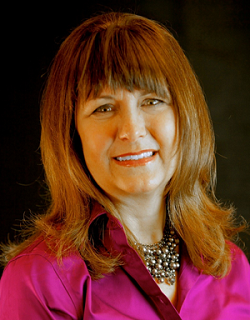
2019
Kimberly A. Schonert-Reichl, Ph.D., Professor, University of British Columbia, Vancouver BC, Canada
PODCAST of the event https://youtu.be/IMOYETAZw_o
Social and Emotional Learning and the Promotion of Children’s Empathy, Kindness, and Altruism in School: Recent Research, Emerging Questions, and Directions for the Future
Dr. Kimberly Schonert-Reichl is an Applied Developmental Psychologist and a Professor in the Faculty of Education at the University of British Columbia (UBC) and the Director of the Human Early Learning Partnership (HELP), an interdisciplinary research unit focused on child development at UBC. Before beginning her graduate work, she was a middle school teacher and a high school teacher for “at risk” youth. Known as a world renowned expert in the area of social and emotional learning (SEL), Dr. Schonert-Reichl’s research focuses on identification of the processes that foster positive human qualities such as empathy, compassion, altruism, and resiliency in children and adolescents. Her projects include studies examining the effectiveness of classroom-based universal SEL programs including such programs as the Roots of Empathy, MindUp, and Kindness in the Classroom. Dr. Schonert-Reichl has received several awards for her work. She is the recipient of the 2015 Joseph E. Zins Distinguished Scholar Award for outstanding research on social and emotional learning (SEL), and the 2009 Confederation of University Faculty Associations BC's Paz Buttedahl Career Achievement Award in recognition of her sustained outstanding contributions to the community beyond the academy through research over the major portion of her career. Dr. Schonert-Reichl has been involved with many scholarly committees and consultancies. She serves as an advisor to the British Columbia (BC) Ministry Education on the development and implementation of the redesign of the Curriculum that focuses on the promotion of personal and social competencies; an Expert Advisor to the Organization for Economic Co-Operation and Development’s (OECD) Education 2030 initiative, a Board Member of the Collaborative for Academic, Social, and Emotional Learning (CASEL), an advisor to UNESCO’s Mahatma Gandhi Institute of Education for Peace and Sustainable Development (MGIEP) on SEL, a member of the Educational Testing Service’s panel on research, and an advisor to the Dalai Lama Center for Peace and Education.
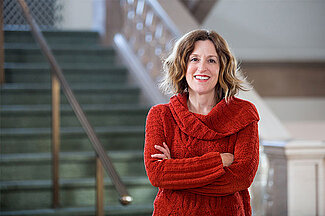
2018
Abigail Gewirtz, Ph.D.,
Strengthening families of those who serve: Results of the After Deployment, Adaptive Parenting Tools (ADAPT) Study
Gertrude Hinsz 2018 Lecture Slides
Dr. Gewirtz is the Lindahl Leadership professor in the Department of Family Social Science and the Institute of Child Development, and also director of the Institute for Translational Research in Children’s Mental Health, at the University of Minnesota. Her research focuses on the development, effectiveness testing, and implementation of targeted prevention programs that promote child resilience among highly stressed families, including those affected by military deployment and war, homelessness, intimate partner violence, and maltreatment.
Gewirtz co-edited the 2016 book, “Parenting and Children’s Resilience in Military Families,” is editor-in-chief of the International Journal of Psychology, and a board member for the Society on Prevention Research. Her research has been funded by the U.S. National Institutes of Health, the Substance Abuse and Mental Health Services Administration, the Department of Defense, and other entities.
Gewirtz earned her doctorate in clinical psychology at Columbia University, and BS and MA degrees in psychology at University College London, England, and Tel Aviv University, Israel. She is a licensed psychologist in Minnesota and Connecticut. She has published over 75 scholarly publications, and writes and presents nationally and internationally on trauma, stress, resilience, and prevention science.
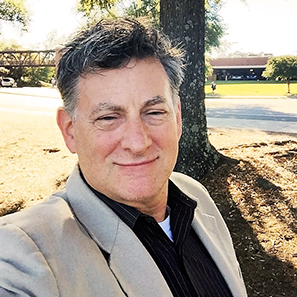
2017
Dr. Jeffry Parker, Associate Professor of Psychology at the University of Alabama
How Perceived Inequalities in Popularity or Physical Attractiveness Between Partners Contribute to Negative Friendship Experiences
Dr. Jeffrey G. Parker is an Associate Professor of Psychology at the University of Alabama. He’s the author of numerous articles on the development of social competence in children and adolescents with a particular focus on how children’s friendships form and how they contribute to children’s adjustment. His most recent research focuses on children’s jealousy and envy surrounding their friendships and the role that these insecurities play in children’s aggression, gossip, and social exclusion. He is a past recipient of the Distinguished Scientific Award for Early Career Contributions to Psychology from the American Psychological Association and the Boyd McCandless Young Scientist Award from Division 7 (Developmental) of the American Psychological Association.
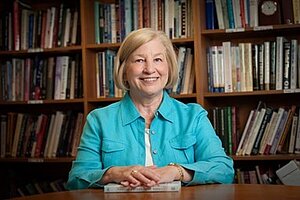
2016
Dr. Sandra Stith
Systemic Perspectives on Intimate Partner Violence: Research and Treatment
Drawing on over 30 years of experience as a researcher and family therapist, Dr. Stith will highlight the key risk factors for interpersonal violence for men and women and present her groundbreaking systemic model for treating high conflict couples who choose to stay together after experiencing interpersonal violence. In addition to her extensive research, Dr. Stith will also discuss how her personal experiences working as a family therapist at a shelter for victims of violence have influenced the development of her approach to treating interpersonal violence. Dr. Stith has published over 90 articles and book chapters on partner violence and has been awarded over $15 million in grants and contracts from the National Institute of Mental Health and the US Military to support her research and intervention efforts.

2014
Dr. Richard Lerner, Tufts University
"Promoting Positive Youth Development: Implications of the 4-H Study for Theory, Research, and Application."
Podcast :https://tegr.it/y/1h15w
Abstract of the talk:
The positive youth development (PYD) perspective is a strength-based model of development that seeks to understand and enhance the lives of diverse adolescents. Findings derived from the 4-H Study of PYD, as well as from other longitudinal studies conducted within the Institute for Applied Research in Youth Development at Tufts University, will be used to illustrate that, when the strengths of young people are aligned with the resources existing in families, schools, and communities that are potentially useful in actualizing these strengths, then healthy development will occur. Accordingly, the support that exists for the PTD perspective illustrates that scholars may be optimist about the potential for promoting thriving among youth, and suggests that the skills sets of researchers may be used in collaboration with community resources to answer questions about what actions, with what youth, at what points in their developmental trajectories, may be taken in what contextual settings, to foster what specific facets of well-being and health among youth.

2013
Dr. Adle Diamond, PhD, FRSC
Canada Research Chair Professor of Developmental Cognitive Neuroscience
"Insights from Neuroscience and Developmental Science To Help Every Child Succeed"
About The Speaker
Power point slides from Adele Diamonds lecture
Abstract
"Executive functions" (EFs) are core skills critical for cognitive, social, and psychological development, mental and physical health, and success in school and in life. Key qualities for success include creativity, flexibility, self-control, and discipline. All of those are EFs or are made possible by EFs. EF skills are amenable to improvement through training and practice. Indeed, diverse activities have been shown to improve children’s executive functions (EFs), including computerized training with or without other types of games, aerobics, martial arts, yoga, mindfulness, and certain school curricula. Regardless of the intervention, a couple of principles seem to hold: (1) EFs can be improved even in very young children. (2) EFs need to be continually challenged; if EF demands do not keep increasing as children improve, few gains are seen. (3) Whether EF gains are seen depends on the way an activity is done and the amount of time spent doing it, practicing and pushing oneself to do better. It’s the discipline, the practice, that produces the benefits. Even the best activity for improving EFs if done rarely produces little benefit. We are not just intellects; we have social needs, emotions, and bodies. The importance of social, emotional, and physical health for cognitive health is nowhere more evident than with EFs. EFs are the first to suffer, and suffer disproportionately, if we are lonely, sad, sleep-deprived, or not physically fit. Therefore, if we want the best EF performance and the best academic outcomes for our children, we need to nurture the whole child; we need our children to feel they have a supportive community they can count on, we need them to feel joyful, and we need their bodies to be strong and healthy. What nourishes the human spirit, it turns out, also appears to be best for executive functions. Traditional activities that have been part of every culture throughout time, such as dance, music-making, martial arts and sports, can be immensely helpful. They challenge our EFs, make us happy and proud, provide a sense of belonging, and help our bodies develop. A school curriculum that ignores children’s physical, social, or emotional needs will find that those unmet needs will work against the achievement of academic goals.

2012
Dr. Dan Flannery
Professor and Director of the Center for Violence Prevention Research and Education Case
Western Reserve University
"Violence and mental health in everyday life"
Everyone experiences violence in their lives to varying degrees every day, as a witness or as a victim, based on where they live, what they see in the media, who they know, or in the community that surrounds them. Violence exposure significantly increases one’s chance of becoming a perpetrator of aggression and violence against others. The effects of daily exposure to violence are evident in brain development, mental health symptoms like depression, anxiety, and anger, behaviors such as substance use and academic achievement, and in risk for perpetration, from bullying to inflicting intentional injury and domestic violence. In this presentation, Dr. Flannery will discuss violence exposure as witness and victim as well as its relationship to mental health and behaviors, illustrated through a variety of studies conducted with youth and families, law enforcement agencies, treatment providers, and juvenile and adult offenders.
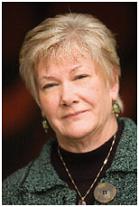
2011
Dr. Jan McCulloch
Professor & Department Head University of Minnesota
"Elder Rural Women's Health Decision Making: Do Concerns for Family Matter?"
Abstract
Prior research has focused largely on the interactions of older women with healthcare providers and the interaction styles that physicians use with older women. The relational interactions that occur prior to the point-of-entry into a healthcare setting remain largely unexplored. Older women’s interactions with socially important others, such as family and friends, in times of health needs and concerns, are missing from the literature. There is little research to date focusing on how older women interact with significant others and how these interactions influence older women as they make personal decisions about their health.
The purpose of Dr. McCulloch’s current qualitative study was to add an understanding of the ways older women display and articulate care for others and how this relational dynamic with socially important others influenced their own health decision-making and self-care. In particular, Dr. McCulloch explored the process of older women’s caring for others by protecting them from worry, bother, and burden, even when the older women’s health may suffer.

2010
Dr. Stephen T. Russell
Professor & Fitch Nesbitt Endowed Chair, University of Arizona
Podcast of Dr. Stephen Russell
"Being Out And Gay In High School: Victimization And Young Adult Adjustment"
Abstract
Contemporary lesbian, gay, bisexual, and transgender (LGBT) youth are among the first to “come out” during adolescence. Many come out at school, a crucial peer environment at this age. For adolescents, coming out is associated with greater risk for peer victimization and harassment. At the same time, studies of LGBT adults indicate that coming out is associated with positive social and emotional adjustment. If coming out has developmental benefits, do such benefits out-weigh the risks of victimization that may result from coming out as LGBT in adolescence?
Drawing from theories of stigma, identity development, and research on contemporary LGBT youth, competing hypotheses are tested using data from a study of 245 LGBT young adults (the Family Acceptance Project). Results show that school victimization is a strong mediator of the link between being out at school and young adult adjustment. Further, once school victimization is taken into account, there is a strong positive association between being out in high school and young adult adjustment. Implications for education practice and policy are discussed.

2009
Dr. Martha Rueter
Associate Professor, University of Minnesota
"When Children Are Not Genetically Related to Their Parents: What Do We Really Know About Parent-Child Communication?"


